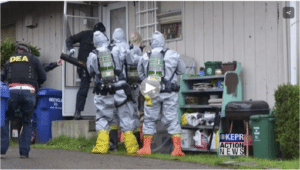Counterfeit Drugs Made With Fentanyl Part of Urgent Public Health Threat

Richard Baum, acting director of the White House Office of National Drug Control Policy, warned the House Energy and Commerce Committee that “illicit fentanyl is an urgent public health threat,” in a letter dated Wednesday, March 29, reports the Wall Street Journal.
Baum’s letter cites the tripling of the death rate due to fentanyl and related synthetic opioids from 2013 to 2015. He said that the “overwhelming majority” of fentanyl in the US is made by foreign sources, including China, Mexico and Canada. He highlights the problem of pain patients taking counterfeit pills that contain fentanyl instead of the legitimate ingredients and notes that the Department of Homeland Security seized 58 pill-making machines in 2016 alone. Baum warns that counterfeit drugs containing fentanyl are associated with deaths, but that lack of reporting, and uniform investigations prevents collating of data nationwide.
In 2015, the report states that “14,772 domestically seized tablets and capsules were identified in DEA forensic laboratories as containing some amount of fentanyl and/or fentanyl-family drugs,” an increase of 12 times the amount seized and evaluated in the previous year. The figure of tested pills are only “an extremely small sample of all counterfeit pills containing fentanyl that were encountered….In one particular instance, three pill presses seized by DEA were each capable of producing between 3,000 and 5,000 pills an hour.” The counterfeit pills appear as “a variety of name-brand and generic medications, including, but not limited to, OxyContin, oxycodone (generic), Xanax, alprazolam (generic), codeine, and hydrocodone.”
Reports the Wall Street Journal, “The potent opioid fentanyl, which is worsening a deadly U.S. drug epidemic, is pouring into the country from an array of sources and presenting law enforcement with complex challenges.”
[Image: Law Enforcement suit up to investigate a fentanyl distributor courtesy KEPR. The drug is potentially deadly to first responders, who may end up incapacitated themselves upon inhaling it.]